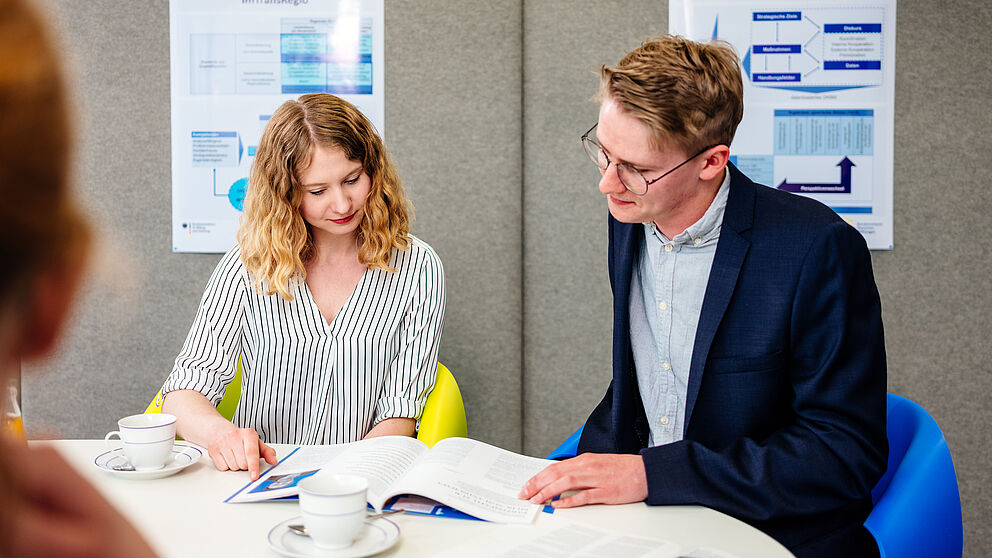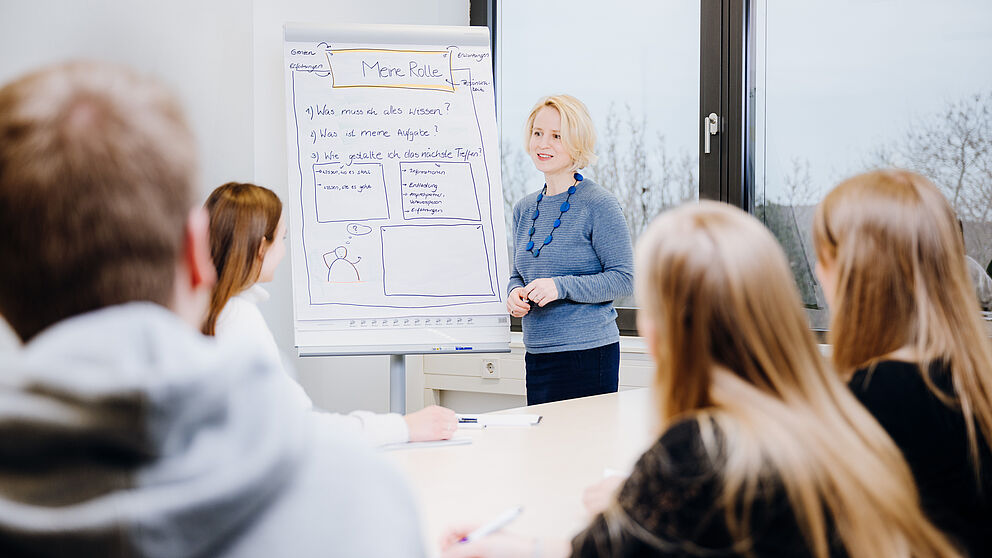International research
The Department of Economics offers fundamental and internationally high-quality research in the fields of economics, international economics and econometrics and focuses on socially relevant issues based on the latest scientific methods and high-quality research data.
Main research areas
The Globalization and Global Markets Unit at the CIE focuses on the future of globalisation and how to achieve balanced global development as we face today's global challenges in the fields of world trade, finance and labour markets.
For decades, economists, politicians and business leaders have written about globalization with widely differing views and perspectives. While many have promoted globalization in finance and trade, others have questioned the merits of globalization, the role of international trade organisations and the benefits of a global economy that promotes free trade and global markets.
However, globalization is unstoppable. The result is a new economic reality - the emergence of global markets for standardized consumer goods and services on an unprecedented scale. Companies that adapt to this new reality benefit from enormous economies of scale, scope and control in production, sales, marketing and management. By translating these advantages into lower world market prices, they can decimate competitors who are still stuck in the old assumptions about how the world works. Managing globalization requires a balance between markets and regulation and between the global economy and the nation state.
Given the ever-changing world situation, future business leaders and political representatives in a globalized world with global markets will be required to have new skills and core methodological competencies, such as business ecology skills to achieve sustainable production levels in a circular economy business model. The career opportunities available to those who have acquired the extensive catalogue of required skills that underpin this module will not only challenge us all, but will also open your mind to an unrelenting passion to make the world a better place for us all. A "win-win" situation for all of us, now and for future generations.
The research projects focus on challenges and opportunities related to globalization and global markets:
- Dynamic macroeconomics and monetary policy
- Sustainable economic growth
- Dynamics of the economic cycle
- Development economics
- Economics of conflict
- International trade and international integration
- Labour economics and human capital
- Income distribution, inequality and poverty
- Financial economics
- Environmental and resource economics
- Economics of migration
Cooperation and competition are two sides of the same coin and are at the centre of social interaction. This applies at various levels. Individuals compete for scarce opportunities such as well-paid jobs, excellent grades or mating opportunities. Recurring opportunities open up the scope for co-operation and the formation of social networks. Companies compete for customers. Repeated competition creates incentives for cooperation, such as collusive behaviour. Nations compete for resources, land or a clean environment. Repeated interaction and the threat of permanent collapse open up opportunities for co-operative agreements that can ultimately save our planet.
The research area "Co-operation and Competition" at the CIE addresses these core problems of social interaction. From the perspective of consumers, businesses and society, the researchers provide new insights and an in-depth and thorough analysis of co-operation and competition.
The research projects are in the fields of Campetiotion and Game Theory and Mechanism Design:
- Competition theory and policy
- Competition in health care
- Competitions and tournaments
- Personnel economics
- Evolutionary and cooperative game theory
- Development and formation of preferences
- Games and information
- Bargaining theory
- Cooperative game theory
- Matching theory
- Coalition formation
- Competition and markets
- Equitable sharing
The Data Science research unit focuses on the development and application of innovative research methods from data science and uses them to address societal challenges in highly relevant fields such as health, education, financial and development economics, and social inclusion and participation.
In the social sciences, increasingly larger and more complex data and more advanced methods are available that can help develop systems and algorithms to extract knowledge, find patterns, generate insights and more accurate predictive models, and improve our understanding of cause-and-effect relationships.
Research challenges in data science research include:
- Financial econometrics
- Semi-parametric regression
- Analysis of large financial data
- Computational econometrics
- Quantitative risk management
- Empirical health economics
- Empirical labour economics
- Empirical economics of education
- Empirical financial research
The CIE's research focuses on the multidimensional challenges of sustainable and inclusive development. In the fields of environmental development, population and health economics, we address issues such as inequality, climate change, environmental degradation and socially irresponsible business practices that threaten to undermine human development and the fundamental human rights of entire populations.
Research projects focus on sustainability challenges and socio-economic, scientific and integrated approaches to sustainable development:
- Man-made climate change
- New and renewable energy sources
- Income distribution, inequality and convergence
- Inclusive growth patterns
- Sustainable economic structure
- Education and awareness of sustainability
- Impact of safety, security and disaster management on sustainability
- Demographic change and employment opportunities
- Conflict resolution
- Demographic pressure, urbanisation and migration
- Foreign aid and development
- Changing consumption and production patterns
- Impact of globalisation on local, national and regional sustainability and stability
- Health-related aspects of sustainability
Research activities
Researchers
The Department of Economics comprises almost 50 people at all levels of the academic career. As a team, our aim is to shape research and teaching at the Faculty of Business Administration and Economics internationally.
Department spokesperson
Prof. Dr. Thomas Gries
Makroökonomik, Internationale Wachstums- und Konjunkturtheorie
Warburger Str. 100
33098 Paderborn
Office hours
Thursday 13:00-14:00



